Home / Our Impact
Our Impact

Here's what our partners are saying...
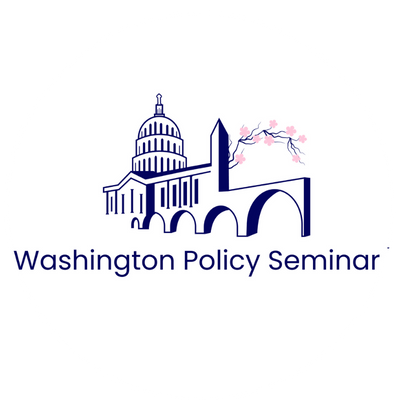

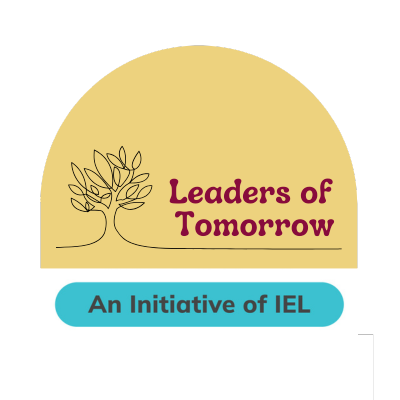
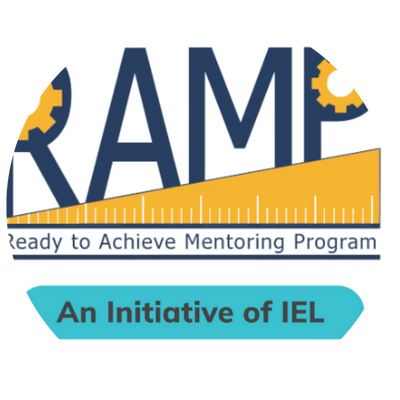
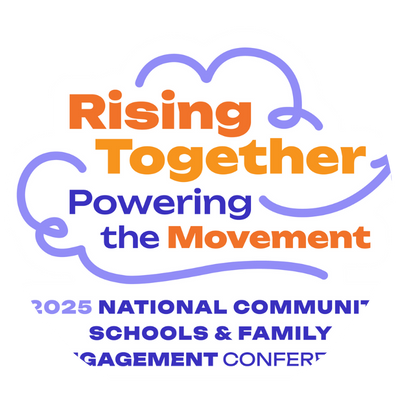
IEL Impact Highlights
July 2024 – June 2025
Key Performance Indicators
Networks
IEL collects information from our program and convening participants to better understand the reach and expansion of programming. Through all IEL services, we serve over 460 districts, representing more than 18,000 schools and nearly 12 million students. The U.S. map below displays the school leaders, teachers, families, and students who directly received IEL’s services in FY25.
IEL had ten active networks in FY25:
- We hosted 23 network meetings, sessions, and webinars in FY25
- 85% of members said they gained knowledge and skills via the opportunities provided through our networks

Convenings
IEL has hosted 6 national and regional conferences/convenings throughout FY25, which provided networking, listening and learning, and capacity-building opportunities to over 4,000 attendees from across the country and beyond.
"The conference has been a breath of fresh air in renewing my energy to go back to my Community School and make an impact with my team. The networking opportunities, inspirational stories, structure, initiatives, and strategies will be applied in my daily work."
2025 National CSxFE Conference Attendee
Policy Highlights
In FY25, IEL and its Coalition for Community Schools advanced national advocacy for children, youth, and families. In September and October 2024, we celebrated the 8th Annual Community Schools Coordinators Appreciation Week, launched a widely used Appreciation Week Toolkit, and submitted a sign-on letter to Congress with over 300 signatures calling for $150 million in FY25 Community Schools funding. IEL also joined national partners and U.S. Secretary of Education Miguel Cardona during the Department of Education’s Back-to-School bus tour, highlighting Community Schools as a solution to chronic absenteeism.
Throughout the year, IEL engaged its networks to co-design the 119th Congressional “Policy by the People” Agenda, ensuring federal priorities reflect the lived experiences of hundreds of education and workforce leaders.
Publications
In FY25, IEL released two significant publications advancing knowledge and tools for the field. Community Schools and Youth Councils, created by our youth ambassadors, highlighted effective strategies and practices for integrating youth voice into decision-making. IEL also launched the Transition-Age Youth and Young Adults with Disabilities Data Dashboard, built on five years of annual Youth Transition Reports. This interactive tool tracks key indicators in education, employment, opportunity youth, and poverty, while highlighting disparities between youth with and without disabilities. Designed for practitioners, advocates, policymakers, and funders, the dashboard equips stakeholders with actionable data to identify urgent needs and advance equity for youth across the nation.
Knowledge Gained and Applications
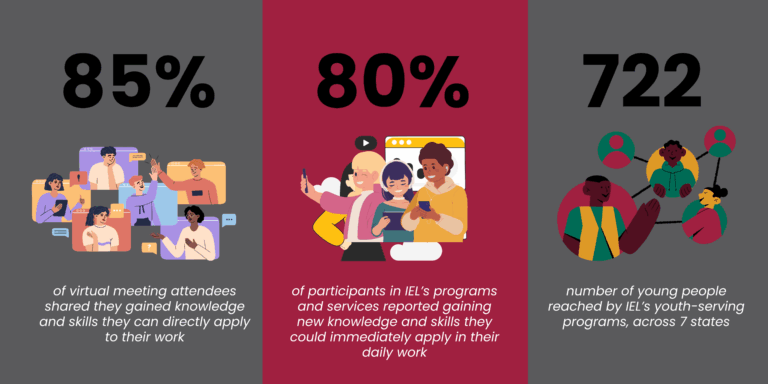
We design for impact:
1) Our collaborative approach is focused on building sustainable leadership capacity that outlasts our presence; and 2) bringing multiple IEL resources to bear in targeted geographic communities allows us to deepen our impact.

3) Improved and more inclusive decision-making processes, systems and practices that ensure that all voices, particularly those of marginalized groups, are elevated and heard.

Increased number of leaders who can create and support policies that lead to more equitable opportunities and access.

4)Increased development and quality execution of equity-centered policies and practices that improve long-term life chances of people in our partner communities.

Improved access to quality educational and workforce resources for children, youth, and families.
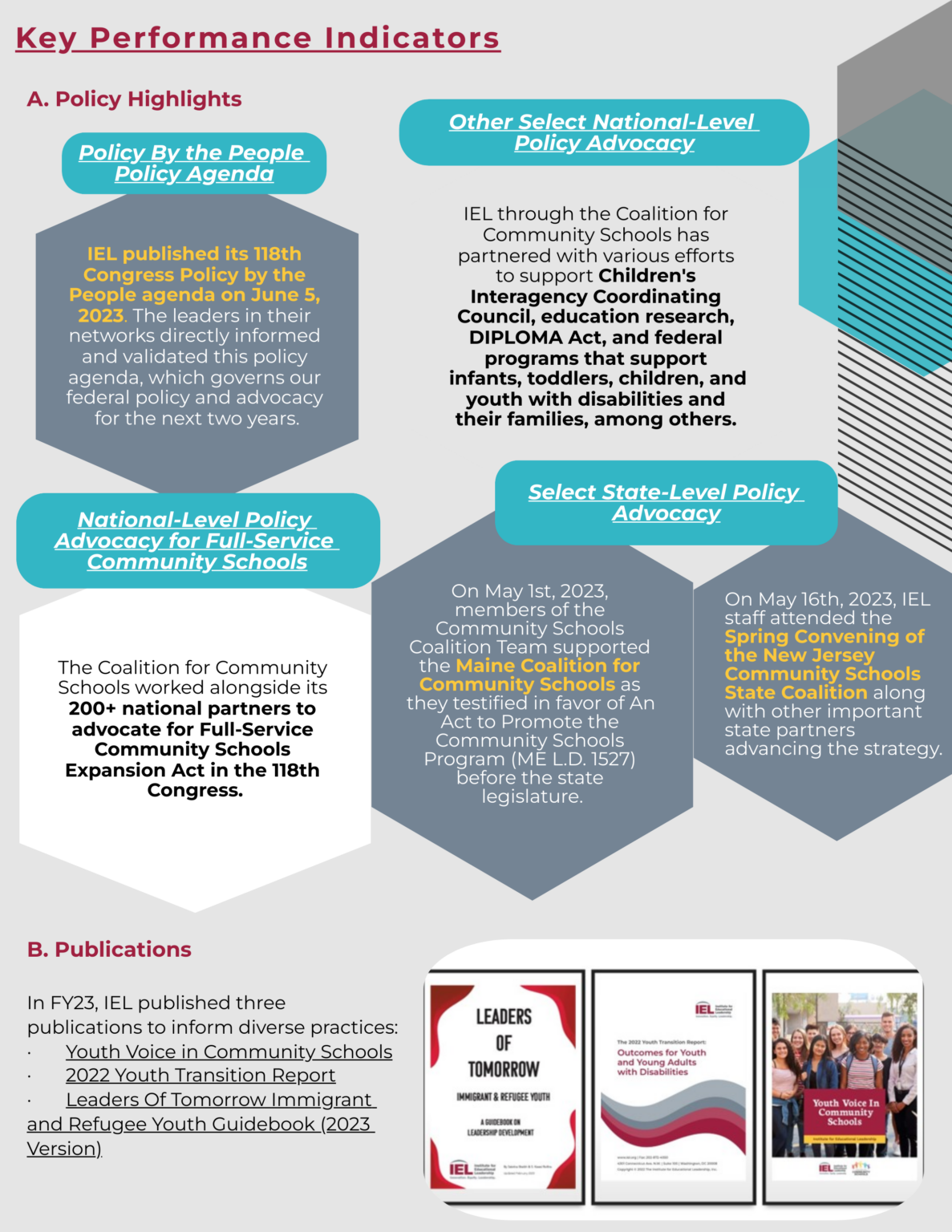
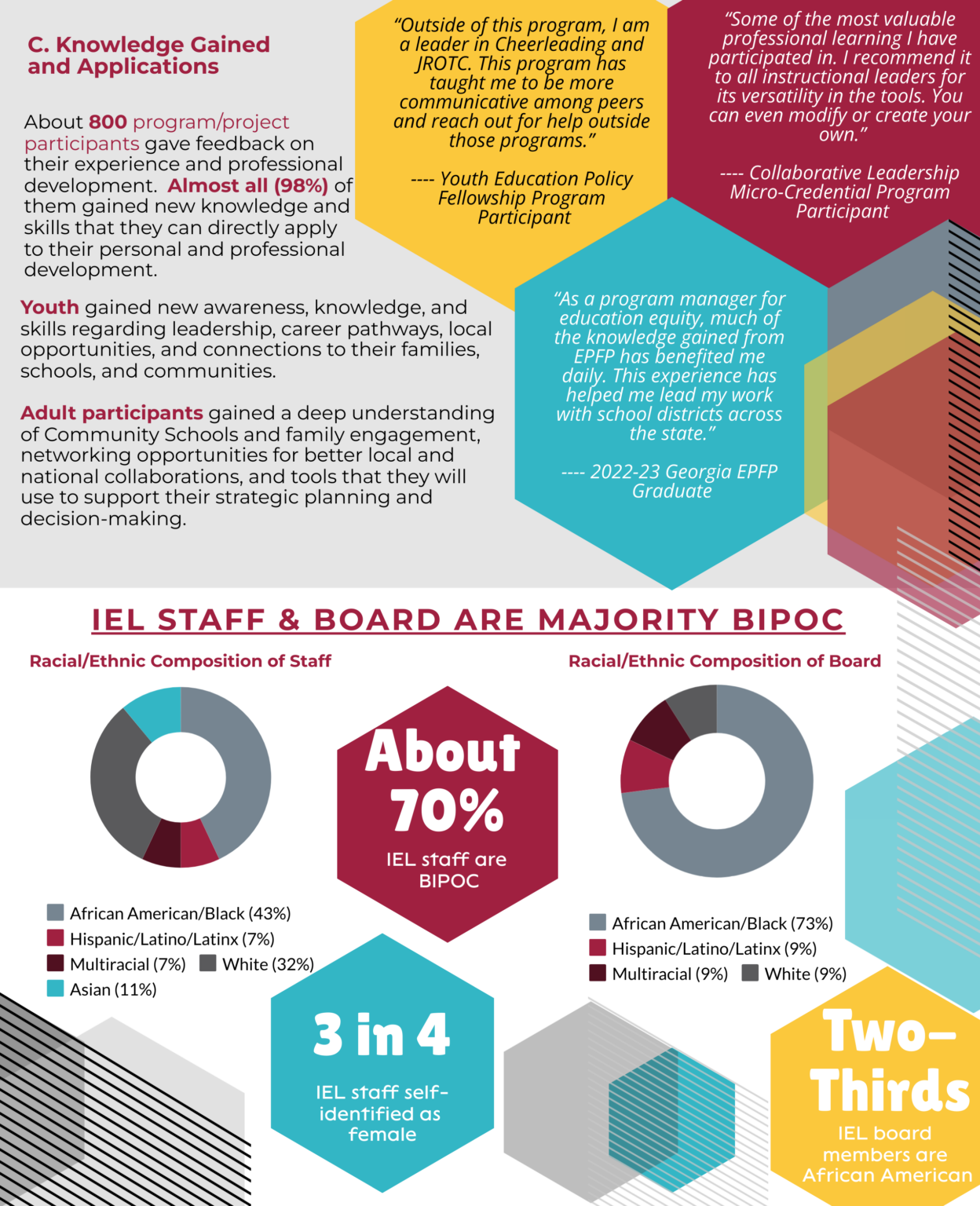

Customized Programs
In FY25, IEL advanced its mission through a range of programs and services designed to build leadership and opportunity across communities:
- Directly supporting youth, IEL continued to strengthen initiatives such as The Ready to Achieve Mentoring Program (RAMP), Right Turn Career-Focused Transition Initiative (Right Turn), and the Youth Council.
- We expanded professional learning opportunities by offering micro-credential training to school principals and youth-serving professionals.
- The Education Policy Fellowship Program™ (EPFP) graduated its 61st cohort in FY25, and extended for the first time its capstone Washington Policy Seminar (WPS) to IEL’s network members, thereby expanding IEL’s reach in policy leadership development.
- IEL also launched Everyone: An Advocate™, equipping leaders at all levels to engage in policy advocacy.
- Over 160 youth serving professionals from 37 states and Washington, DC engaged in a four-module Leaders of Tomorrow micro-credential to enhance their capacity, including support for immigrant and refugee youth.
- In addition to these customized programs, IEL provided networking opportunities and coaching services through our regional work, which now spans 34 states and U.S. territories, fostering collaboration and capacity-building nationwide.
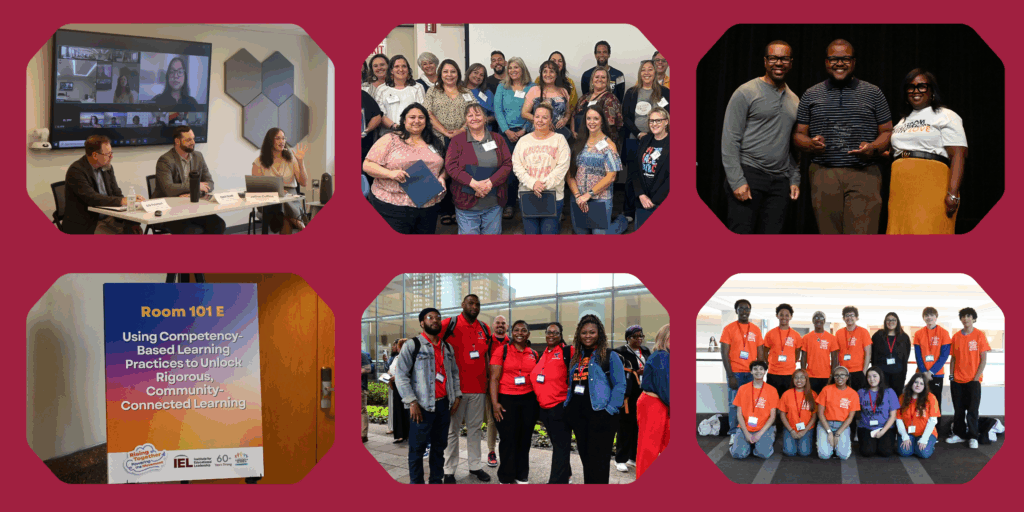
National Presence and Impact Through Leadership, Partnerships, and Advocacy
In FY25, IEL deepened its national presence by engaging in dozens of high profile events, partnerships, and convenings, strengthened Community Schools, and elevated the voices of families and youth. From keynote addresses at major conferences and White House roundtables to facilitating the launch of state coalitions and site visits across the country, IEL staff consistently brought national attention to local innovations and community-driven solutions. Our leaders contributed to federal conversations on chronic absenteeism, family engagement, and whole-child strategies, while also supporting state and district partners in building sustainable coalitions and networks.
